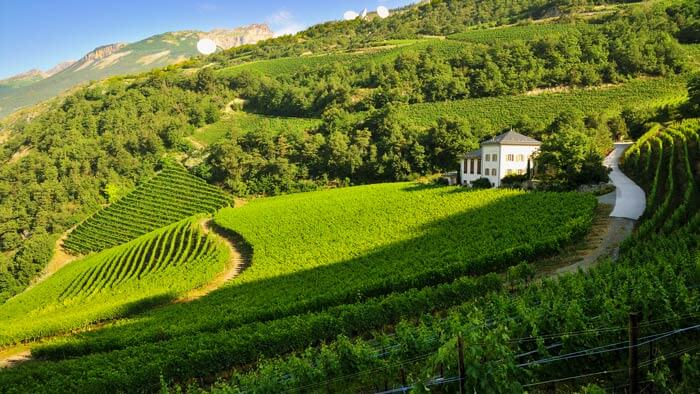In 2015, the start-up company ImmunRise in Bordeaux discovered a special Breton micro-algae. It possesses fungicide characteristics as well as those of biopesticides. Their usage reduces considerably the one of chemical products and synthetic plant protection. The laboratory tests had all very positive results and the first tests under real conditions were extremely convincing…
ImmunRise made its first in-vitro tests with algae molecules, which had been filtered and dried and then processed into powder. Afterwards, the substance gets mixed with fresh water so that it can be spread over the entire vineyard.
How can we destroy, with 100 % certainty, the fungi at the vines’ foot? First in-vitro tests…
The company also discovered that the micro-alga is able to proliferate in order to defend itself against certain fungi, especially against those that are responsible for the vines’ deterioration. Characteristics that can also be used for other forms of cultivation and that can be useful for the entire agricultural sector in France. The results are more than just positive: 100 % efficiency in laboratory tests against mildew and 50 % against botrytis. However, despite these promising results, one scientist at INRA (National Institute of Agricultural Research) remains cautious about tests that are done under real conditions. She is concerned that possible environmental impacts and external climate conditions during the tests could lead to less convincing results.
Under real conditions: In certain vineyards, the tests for the fungi’s destruction were very promising…
Nevertheless, the first tests appear encouraging. In fact, since the beginning of the year, the first winery in the region of Cognac has used the algae of the company ImmunRise for treating its vineyards. After having already tested the usage of other products based on algae, the winery was able to compare the effects of ImmunRise’s mixture on its non-treated vines. And even if the climate was relatively mild and with few *mildew in 2017, the first symptoms appeared at the beginning of August. In plots with non-treated vines, the first signs started to appear, whereas the vines in the treated plots stayed healthy. That is an observation that encourages and that seems to prove that a natural alternative is possible under some moderate pressure of epidemics. Winemakers have already been treating their vineyards, which largely consist out of the Ugni Blanc (a very sensitive type of grape),
for years now to prevent the economic catastrophes, which are caused by certain diseases such as grape canker, from happening once again. The Château Dauzac in Bordeaux and some other winemakers from Tutiac did also a number of tests in some of their plots, but on a smaller scale, and the results were all very positive…
Algae have bio-stimulating effects on vines..
There is no doubt that those micro-algae will reduce the usage of chemical substances for “preventive purposes” considerably, as long as further tests with higher epidemic risks are conducted in the next few years. The head of ImmunRise hopes to get the chance to organise further tests in France and other different wine regions in order to receive the authorisation to finally launch the product in 2019. Furthermore, some testers noticed certain side-effects as result of the treatment. The vine’s leaves were more supplied; they became much greener and the grapes began to ripen faster. But one has to wait for the harvests to be 100 % sure that those effects have a real impact on the final product. The reasons for these physiological effects could be the trace elements, proteins or the nitrogen that are included in the algae particles that were used. Some organisations, however, remain highly critical of the different attempts regarding biocontrol in the vineyards. Above all, they mention the algae’s low efficiency during the flowering period as one reason…
*A fungal disease, also known as “pseudo-fungi”, that can lead to epidemics among certain crops, tomatoes, potatoes, lettuce and especially among vineyards.




